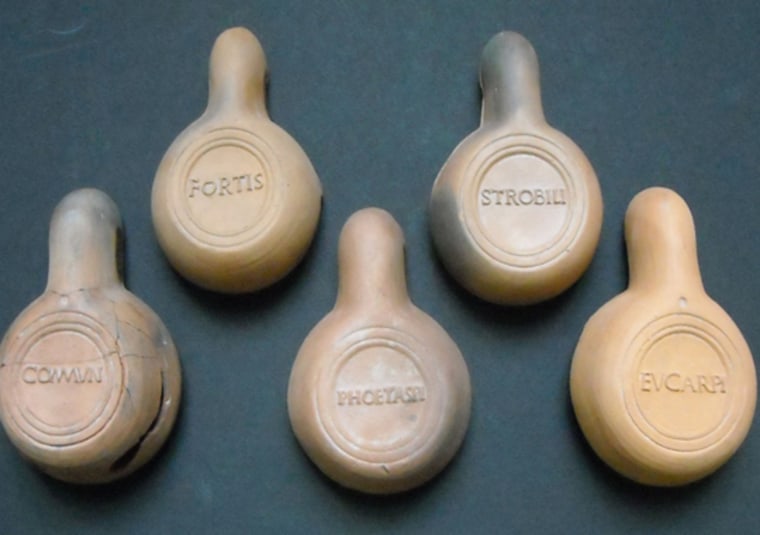Italian researchers have discovered the pottery center where the oil lamps that lighted the ancient Roman Empire were made.
Evidence of the pottery workshops emerged in Modena, in central-northern Italy, during construction work to build a residential complex near the ancient walls of the city.
"We found a large ancient Roman dumping filled with pottery scraps. There were vases, bottles, bricks, but most of all, hundreds of oil lamps, each bearing their maker's name," Donato Labate, the archaeologist in charge of the dig, told Discovery News.
Firmalampen, or "factory lamps," were one of the first mass-produced goods in Roman times and they carried brand names clearly stamped on their clay bottoms.
The ancient dumping in Modena contained lamps by the most famous brands of the time: Strobili, Communis, Phoetaspi, Eucarpi and Fortis.
All these manufacturers had their products sold on the markets of three continents. Fortis was the trendiest of all pottery brands and its products were used up to the end of the second century A.D.
"It was indeed a commercial success. Fortis gained such a name for its lamps that its stamp was copied and reproduced throughout the empire. It was one of the earliest examples of pirated brands," Labate said.
Scholars have long thought that the fashionable Fortis originated from Modena — then called Mutina — but until now no evidence had been found for that claim.
"We know now for sure that Fortis came from Mutina. The city was a major pottery center, a cluster of pottery workshops, as the variety of brand names on the newly discovered items testifies," Labate said.
Labate added that kilns were located outside the city walls to prevent fires from breaking out in the city.
The ancient dumping contained other important objects, such as a fine terracotta statuette depicting Hercules as he captures the Erymanthian Boar, and 14 lead bullets which were probably used in the Battle of Mutina in 43 B.C. During that battle, Decimus Brutus, one of Julius Caesar's assassins, defeated the besieging Mark Antony with the help of Octavian, the future Roman Emperor Augustus.
"This is an extraordinary discovery, since it provides unique archaeological evidence which confirms historical accounts," Luigi Malnati, superintendent of archaeological heritage in Emilia Romagna, told Discovery News.
The oil lamps and the other newly discovered objects will be displayed in a permanent show at the Archaeological and Ethnological Museum in Modena at the end of the month.
